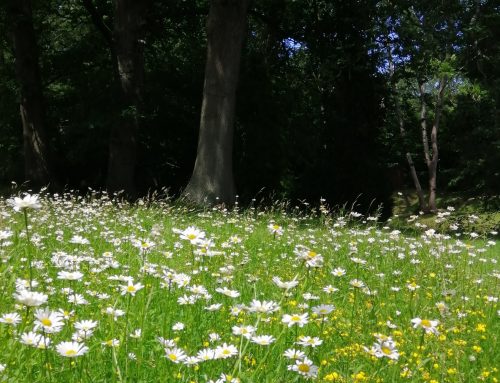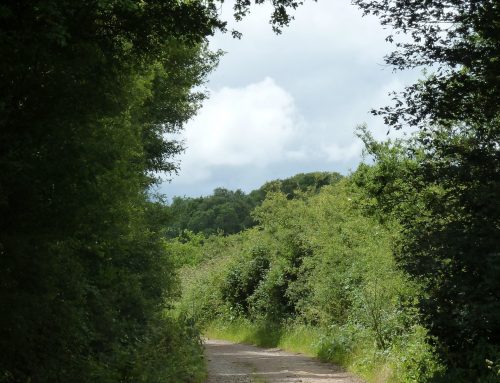Dead Wood
New Growth
Since engaging in this tussle with the self-care subject a few weeks ago, I have been on a number of morning runs through the woods near home. This is always a good thinking time for me. I am not a great runner, more a run-walk-jog-drag-repeat; but I love being out there in that space.
I see the sky, the trees, the fields; I feel the air, the chill, or the warmth of the sun. I think. I process. I allow myself to Be. And I don’t beat myself up on the days I choose not to go.
Last week, I noticed the many fallen trees, huge broken branches strewn across the dry ground, heaps of dead wood scattered and left lying.
We know now that these fallen branches, this dead wood lying on the ground, covering the soil, filling the gaps, protecting patches from sun, air and rain, also create an ecosystem process essential for sustainability and new growth.
We protect and preserve these precious woodlands now, giving great respect and regard to these spaces and how they nourish our planet.
This parallels the psychological and unconscious processes of our internal world.
Our broken parts, damaged souls, wounded selves are often left lying, like dead wood: left to rot, to smother and fill the spaces inside us; disallowing love and light to filter through.
These discarded parts are seen as negative, unwanted; useless, ruined, ugly, bad, worthless.
But, like the dead wood in our green, sheltered outdoor spaces, they don’t just immediately evaporate. They don’t vanish. They stay, they dwell, they cover that space onto which they fall.
They have potential for other, significant growth.
Holding onto this concept, I thought about the unconscious processes in the therapeutic work; that which lies beneath the surface, out of sight/consciousness, holding such a wealth of potential, purpose, wisdom and meaning.
In therapy, this is our ‘green space’ of exploration. We seek to look beneath the ‘dead wood’ to find what lies beneath. We seek to pay attention to the trauma, the damage, which caused the metaphorical broken branch to fall.
The psychological ‘fallen branch’ may be the tears that come involuntarily, or the anger that rises up and we cannot control, the part of us that sabotages relationships and repeatedly leads us into psychological distress, repeating negative patterns: these are the symptoms that bring us into therapy.
In therapy, we take these fallen, broken, split, damaged, rotting parts of ourselves and come to understand that they are grieving, longing, struggling aspects of our being. They feel broken, overwhelmed and lost, but these are precious parts and once lovingly and respectfully seen, can be recognised for the richness they provide; our inner ecosystem of empathy, wisdom, depth, love, compassion, resilience. This is the new growth that occurs underneath our fallen branches. This is self-care of the most damaged, broken elements of ourselves.
By tending to our inner environment we encourage the development of our emotional world and create a greater whole, becoming more fully and authentically ourselves.
Psychosynthesis is a theoretical model which gives a framework through which to understand this process. Using the idea of ‘subpersonalities’, psychosynthesis invites us to come into contact with the parts of ourselves that have been abandoned, judged, cast aside: the lonely child, the spoilt brat, the heartbroken teenager, the scapegoat; also the dominant parts which we cannot silence – the critic, the doubter, the insecure, the anxious, the under-confident.
Its aim is to develop an awareness of all these parts, to develop greater understanding, appreciation and acceptance of these parts, in order to become more fully ourselves, while holding in mind and developing the sense of self which is more than all of these: “I am my feelings, and I am more than my feelings.”
We cannot, and should not, cast-out or cut off these parts: they reside in us, are a crucial part of us. Like the ecosystem, we need to value the whole – what lies above and what lies beneath, and bring that awareness into our consciousness so that it is used to its full potential.
This is what I hold in mind for you when I sit with you. I see the parts longing for contact; parts desperate for acceptance; parts needing to be heard.
We will listen to the dominant parts, parts speaking too loudly, dominating the scene, sabotaging your wellbeing: these parts matter too, and need to be heard, so that they may settle and allow your true, balanced, authentic self to emerge.
Keep seeking your way to self-care. There is peace to be found for these distressed parts of yourself.
If you come across some dead wood … remember there is great purpose beneath.
#intherapy #itsgoodtotalk #letstalkaboutit #selfcare #reachout #askforhelpwhenyouneedit #loveisking #lovematters #selfcarematters #therapyinnature #ecotherapy






